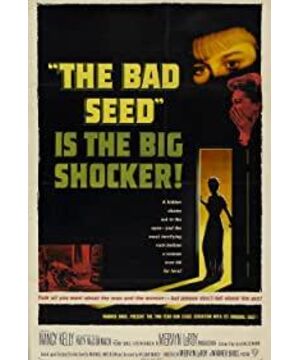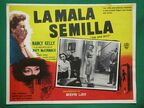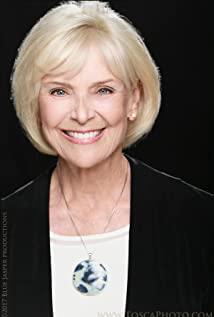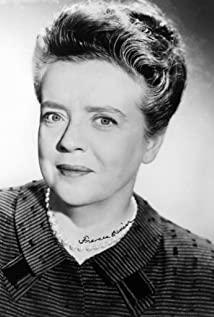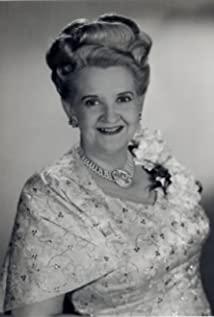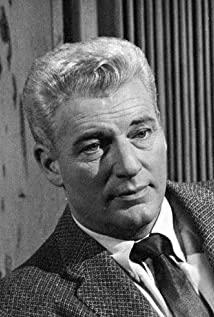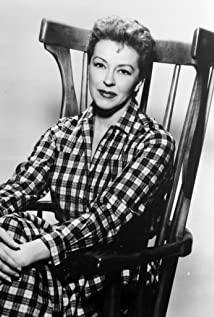If I were to pick out my favorite from an army of talented female killers, it wouldn't be Eva Ku, whose name is too soft and her heart is too hard; Smith, she is not smiling, she is the type that the British like; not Lizzie Bourdain, whom we Americans like very much, it is said that she used the head of a pet cat to practice axe skills, may she be immortal in Tong Yao; no The beautiful Leda Southard, the public didn't want to believe their eyes, they forgot to applaud her; nor was Anna Hahn who should be consecrated, she came out to sprinkle arsenic, sleeping pills and strychnine, Also introduced a new deadly poison into American literature; nothing but croton oil, oh my! Nor is it Mrs. Chia Gilligan, who runs a nursing home. She always has a way of keeping the nursing home from running a financial deficit. Is it Bailey Guinness from Indiana? No, it is said that she killed many people with a hatchet, and chopped the corpses into fodder to feed her pigs, but she knew how to be diligent and thrifty. It wasn't Christine Wilson, an English girl with a colchicine obsession, who made her contemporaries think that some new disease was breaking out in England. Not to mention Suzy Ora, who almost single-handedly wiped out the population of two Hungarian villages.
No, the masters of appeal in the art of murder, although they are all geniuses, are not my favorite. My number one choice will be the incomparable Raid Denke, the queen of them all: Bessie's heart is a small refrigerator, her spine is steel, and the precision and indifference of her brain can only be matched by a keyed computer .
Bessie Denke was born on a farm in Iowa in 1882, the maiden name Bessie Schuber, the son of Henry Schuber and Mammy Schuber (originally Gustafson). eldest child. She has a brother and a sister. The little boy died of arsenic poisoning, when Bessie was 7 years old, young and ignorant, and sprinkled arsenic as white sugar on the boy's bread and butter. When her sister was helping her lift water, she accidentally fell into a well and drowned. The Gustafson family's grandfather was shot dead on a Sunday afternoon as he napped in a rocking chair on the back porch. No one knows how it happened, let alone who the murderer is. Of course, then who would have wondered whether Bessie Schuber was alone when the crime happened? At this time, Bessie was a quiet girl with big eyes, only 11 years old.
Bessie's father, Mr. Henry Schubert, died in a bizarre accident, the death of a threshing machine, for which there was never a reasonable explanation. Later researchers interested in Mrs. Denk discovered a noteworthy detail: Bessie was working with her father at the time, and yet, even if she was really involved in his father's death, no reliable evidence had ever been found. All in all, the legacy left by the father makes the life of the orphans and widows behind him quite advantageous. Bessie was 20 at the time, and although her criminal career may have started by accident, it went really smoothly, and Bessie was full of enthusiasm at this time. Bessie felt that she would be able to make a big difference in the city, and her eyes were already on Omaha, Nebraska. Having said that, Bessie stayed on the farm for a while longer. She had to take care of her mother. After her father died, her mother had been suffering from indigestion. Soon after her mother passed away, Bessie Denk finally completed a difficult task for ordinary people. In the imaginary task, she killed her entire family.
The mother died on schedule, the farm and insurance money went to Bessie, she sold the farm and moved into the city. She was married in Omaha to Vladimir Kurowski, a man with plenty of pockets. At the insistence of the bride, he bought himself high insurance. He died within a year, leaving his grief and a large fortune to his wife. Mrs. Kurowski took out the insurance payout, sold her inheritance, and moved to Kansas City. It didn't take long for her to meet a former farmer named August Denk, with whom she soon married. August Denck came from a wealthy family, but his family was only well-off. Mrs. Denk sold her Kansas City home and moved into her new husband's farm, a career that has flamboyantly relished and horrified her contemporaries.
The Denk family's relationships are as complex as three Victorian novels. You need a family tree in one hand, and tables, blueprints, and cast-iron villains in the other to make sense of those complex relationships. Yet when young Bessie Schubert married into the big family, she did not complain, but studied them voraciously for lofty goals. Her carefulness in analyzing the traits and personalities of these new relatives is astounding. She figured out how close everyone was to everyone else, and everyone's blood relationship to Karl Denck's old grandfather, who was in charge of the family's finances. Bessie's seriousness compares favorably with the chess player's performance at the Championship. To take this clichéd metaphor a step further, look at her performance: Bessie prudently prunes the rest of the Denk family, leaving the inheritance inevitably in her husband's hands, and she's making a fortune The shrewd, calculating and ruthless talents in this game of death, and the champions on the chessboard do not rely on them to gallop?
She worked diligently towards her goal, using poisons, axes, rifles, shotguns, hanging and drowning disguised as suicides, a wide variety of murder methods, superb modus operandi, and a murderous style that left no trace. A professional hitman; ten years later, Bessie achieved her goal and took a total of 23 steps. Bessie killed her husband's entire family. Her courage, excellent strategy, and extreme attention to detail made her a The most beloved goddess among lovers of intelligent murderers.
August Denk took the helm of the kingdom that his wife had won for him. At this time, August Denk's character underwent a great change. He was no longer a gentle and indifferent husband. He suddenly felt that he had become something important and started giving orders to others; that was not the worst, this gentleman seemed to be squandering his fortune through a number of unrealistic wealth-accretion schemes. She hadn't planned to get rid of him immediately, but seeing her life's great cause threatened, she for the first time strayed from the cunning conservatism of the "grand plan" and put the arsenic directly into the buttermilk.
Bessie's plan finally achieved the predetermined goal, her childhood dream came true, and she finally took the financial power of the Denke family in her hands. She sat down to enjoy the fruits of her hard labor, playing the role of a bereaved but courageous widow. She probably never felt regret or remorse for what she had done. She never sees herself as a criminal, but an active businessman who has just taken an unusual path to wealth. With foresight and agility, she has elevated herself to a humble destiny that surpasses those of the less gifted. ·
As she sat contentedly enjoying life in her neat room, the first bark of the first hound sounded on the edge of the swamp; Aunt Ida Gustafson, the silent , a woman full of scheming, began to wander among the villagers, and said his doubts aloud, "August did not die of some falciparum malaria, and the doctor would talk nonsense, who knows what the disease is like. Bessie's niece There must have been something in August's buttermilk...Dunk's grandfather died just as suddenly as he was...isn't that surprising? Well, old gentleman was in the shape of a bull It's not over yet, when Bessie was a child, there were a lot of sayings in the family. When Bessie was interested in someone, bad things would happen to that person, don't you think it's strange?"
At the beginning , the neighbors seemed to be watching a play, and no one would believe her; then, one afternoon, Ada went to the police and told the story exactly, "Get August out!" she said. "Dug him out, and you'll know as soon as you check!"
County cops ask superiors for permission to exhume August Denk's body: Bessie weeps and refuses to let her husband fall victim to Aunt Ada's malicious intent, so cops apply for a court order to leave her alone Dig up the corpse: perhaps for the first time in her life, Mrs. Denck is in a state of blind, irrational fear. She lost her long-held good judgment, and came up with a statement to protect herself, but this statement was too stupid to be true: she told everyone that August and Denk's grandfather were killed Poisoned, but the murderer was someone else. It was Aunt Ada who committed these crimes, and she probably killed the others too. She suspected Aida from the beginning, but was afraid that her life and her children would be threatened, so Er kept her mouth shut. Aunt Ai also threatens to kill her and her children and burn down the house. If she and the child have a relationship, she hopes that everyone must remember these words about Aunt Ada, and they must testify against her in the future and seek justice...
That night, she hacked Ada Gustafson to death, All her own children were also hacked to death - only the youngest daughter, Christine, survived. Apparently, she knocked out old Aida with a blunt axe, and then cut off the old woman's head with a cleaver. After doing this, she changed the old woman's clothes, and even put the wedding ring on the old woman's finger. Before going out for the last time, she lingered for a moment and set the whole house on fire. She hoped—though it later turned out to be false—that the police would take the old woman's body as hers. Then suppose that Ada Gustafson was responsible for these lives and, of course, the previous murders, and
she wrapped old Ada's head in newspaper, carried it with her, and fled the burning house; however, her disguise Didn't fool anyone. The next morning, police caught her in the waiting room at Union Station in Kansas City. The chubby package was on her lap, the police cut the ropes, untied the newspaper, and Miss Gustafson's head fell from her seat, rolling halfway across the waiting room.
View more about The Bad Seed reviews


